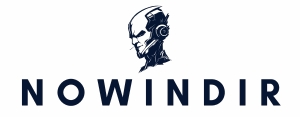In today’s fast-paced digital world, managing social media can feel like juggling flaming swords while riding a unicycle. Enter social dashboard tools, the superhero sidekicks every marketer needs. These nifty platforms streamline social media management, making it easier to track engagement, schedule posts, and analyze performance—all without breaking a sweat.
Table of Contents
ToggleOverview of Social Dashboard Tools
Social dashboard tools streamline the complex world of social media management. These tools provide key functionalities that allow marketers to enhance their strategies effectively. Managing multiple social media accounts becomes simple with features like engagement tracking, post scheduling, and performance analysis.
Engagement tracking enables users to monitor interactions on various platforms. Marketers can view likes, shares, comments, and mentions in one place. Post scheduling allows for optimal timing of content publication, ensuring posts reach audiences at peak hours.
Performance analysis aggregates data from all connected accounts. This feature gives insight into what content resonates with audiences most. Users gain access to metrics such as reach, impressions, and follower growth across different platforms.
Many tools also offer customizable dashboards. Dashboards can be tailored to showcase specific metrics relevant to individual business goals. By displaying real-time analytics, these platforms help marketers make informed decisions quickly.
Integrations with other marketing tools enhance functionality further. Popular social dashboard tools often connect with email marketing software and customer relationship management systems. This synergy promotes a cohesive marketing strategy and improves data-driven decisions.
Popular examples of social dashboard tools include Hootsuite, Sprout Social, and Buffer. Each tool presents unique features catering to various needs and preferences. No matter the tool selected, the key benefit remains the same: improved efficiency in navigating the busy landscape of social media.
Key Features of Social Dashboard Tools

Social dashboard tools include several key features that enhance social media management efficiency. These features contribute to a more streamlined approach for marketers.
Data Integration
Data integration plays a crucial role in social dashboard tools. Many platforms allow users to connect multiple social media accounts, facilitating comprehensive data aggregation. Integrating data from various sources offers insights into audience interactions and trends. Tools, such as Hootsuite and Sprout Social, provide seamless integrations with analytics platforms and customer relationship management systems. This connectivity enables users to create holistic views of their performance metrics. Real-time updates from integrated accounts ensure marketers access the latest data easily. Efficient data flows enhance decision-making and strategy adjustments.
User Interface and Experience
User interface and experience significantly influence the effectiveness of social dashboard tools. A well-designed interface ensures that users navigate the platform intuitively. Customizable dashboards allow marketers to arrange and prioritize information according to their needs. Clear visualizations and easy-to-read charts provide quick insights into performance metrics. Many tools emphasize user experience by offering mobile applications, enabling users to manage accounts on the go. Moreover, responsive designs ensure optimal viewing across devices. An engaging and intuitive user experience contributes to higher user satisfaction and increased tool adoption.
Benefits of Using Social Dashboard Tools
Social dashboard tools provide significant advantages for marketers, improving their ability to manage social media effectively. These tools enhance data analysis and collaboration, leading to better strategies and outcomes.
Improved Analytics
Analytics improvement stands out as a primary benefit of using social dashboard tools. These tools aggregate data from various social media accounts, presenting a comprehensive view of performance metrics. Metrics like engagement rates, audience demographics, and content performance provide valuable insights for decision-making. Users can identify successful content trends and audience preferences quickly, enabling tailored strategies. Comparison tools often allow marketers to evaluate past performance against benchmarks, streamlining optimization efforts. Integrating analytics into daily operations saves time, allowing teams to focus on creating impactful content. Access to real-time data empowers users to adapt their strategies on the fly, maximizing engagement opportunities.
Enhanced Collaboration
Enhanced collaboration serves as another key benefit of social dashboard tools. These platforms facilitate teamwork by allowing multiple users to manage accounts seamlessly. Features like shared dashboards and comment sections enable easy communication among team members. Marketers can assign tasks, approve content, and share insights efficiently, fostering accountability. Real-time updates ensure everyone stays informed about ongoing campaigns and performance metrics. Teams can coordinate their efforts, avoiding duplicated work and miscommunication. Collaborative features streamline the planning and execution of social media strategies, driving better results. Ultimately, these tools foster a more cohesive team environment, leading to improved campaign success.
Popular Social Dashboard Tools
Numerous social dashboard tools streamline social media management, each offering unique features tailored to enhance efficiency and effectiveness.
Tool A: Features and Pros
Hootsuite excels in integrating multiple social media accounts, enabling users to manage platforms under one roof. With its user-friendly dashboard, marketers can schedule posts, monitor mentions, and analyze performance metrics in real-time. Customizable reporting offers insights into audience engagement, enhancing strategy development. Its extensive app directory further expands functionality, promising comprehensive social management.
Tool B: Features and Pros
Sprout Social provides a robust set of analytics tools, focusing on engagement tracking and audience insights. Marketers enjoy a collaborative interface, allowing teams to work together seamlessly on campaigns. The platform’s scheduling features optimize post timing, ensuring content reaches target audiences effectively. Furthermore, the in-depth reporting capabilities assist users in refining strategies based on detailed performance data.
Tool C: Features and Pros
Buffer simplifies the scheduling process with its intuitive interface, letting users queue posts across various social channels easily. Analytics tools track post performance, highlighting engagement trends and helping users make data-driven decisions. The clean layout ensures quick navigation, promoting efficient content management. Additionally, its browser extension allows for immediate sharing of interesting content, enhancing overall social media activity.
Social dashboard tools have become indispensable for marketers navigating the complexities of social media management. By offering features like engagement tracking post scheduling and performance analysis these tools empower users to optimize their strategies effectively. The ability to integrate multiple accounts and provide real-time analytics enhances decision-making and fosters collaboration within teams.
With options like Hootsuite Sprout Social and Buffer each tool brings unique strengths to the table catering to various needs. As social media continues to evolve staying ahead requires leveraging these innovative solutions. Embracing the right social dashboard tool can significantly improve efficiency and effectiveness in achieving marketing goals.





